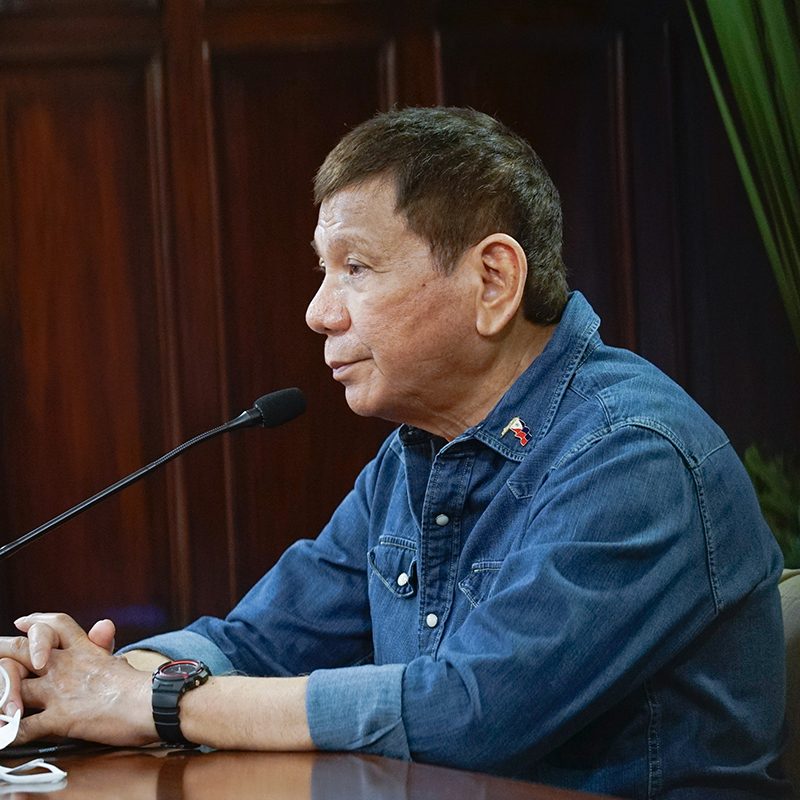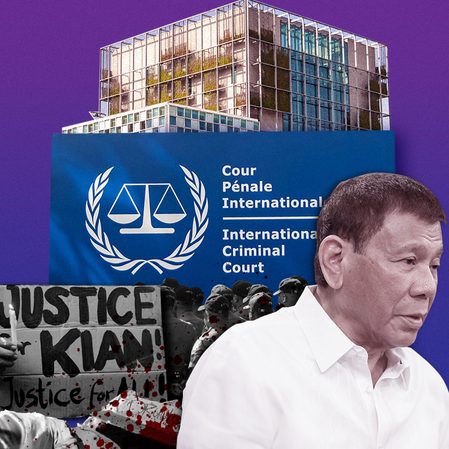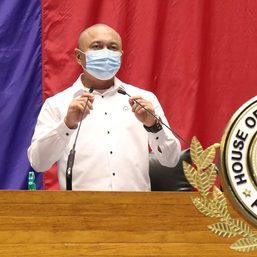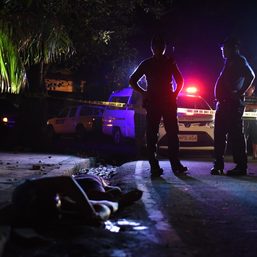SUMMARY
This is AI generated summarization, which may have errors. For context, always refer to the full article.

Despite losing their case on procedural grounds, opposition senators still welcomed the High Court’s ruling on President Rodrigo Duterte’s withdrawal from the International Criminal Court (ICC) as it defined the commander-in-chief’s powers over treaties.
Senate Minority Leader Franklin Drilon said on Friday, July 23, that the Supreme Court (SC) affirmed that treaty-making and treaty-abrogation is not the sole authority of the president but a shared power with the Senate.
“The Court may have dismissed the petition on procedural grounds but the decision made a doctrinal pronouncement, by acknowledging and explicitly ruling that the president may be the ‘chief architect of foreign policy’ but his powers are not absolute. The decision affirms that the realm of treaty-making and abrogation is not exclusive to the president. It is a shared power with the Senate,” said Drilon.
“The ruling will provide stability insofar as our treaty obligation is concerned. This is a win for the Filipino people, as treaties will not be subject to the caprice of one man,” he added.
In May 2018, minority bloc senators went to the SC to ask the magistrates to declare Duterte’s withdrawal from the Rome Statute – the founding document of the ICC – as “invalid or ineffective” as it did not have the concurrence of the Senate.
They had argued that Duterte’s withdrawal from the ICC was a way to evade accountability for his bloody war against drugs, where thousands have died in police operations and vigilante-style killings.
Three years later, however, the justices junked the petition questioning the move because the issue had become moot and academic.
The SC provided three rules for the president to withdraw from a treaty, and two of them say he cannot withdraw on his own if the treaty bears congressional imprimatur and/or if the Senate has declared that its concurrence was needed to withdraw from it.
Still, the High Court said in the first rule that the president still “enjoys much leeway” when withdrawing from a treaty, such that even without a court determination that the treaty is unconstitutional, he can make his own determination.
For international law expert Andre Palacios, this still limited presidential power.
“Previously, the idea is that the president is the sole architect of foreign policy with unlimited powers, so now it’s clarified that the power is shared and the power is limited, and very detailed limitations,” said Palacios.
‘Bad news for human rights violators’
Senator Risa Hontiveros also said the SC indicated that safeguards for human rights and protections against offenses addressed by the Rome Statute remain in place in the Philippines.
This means Duterte’s withdrawal from the ICC would not obliterate the liabilities of those charged for acts committed up to the date of withdrawal.
“I have some bad news for human rights violators in the country: They are not off the hook. They have nothing to celebrate. Sooner or later, they will have to face justice for the heinous acts they have committed against the Filipino people,” said Hontiveros.
Detained senator Leila de Lima, Duterte’s fiercest critic, told President Duterte that the SC ruling would not prevent the ICC from probing into his crimes either.
She is still in jail over what she has described as trumped-up drug charges against her.
De Lima said the SC echoed the pronouncement of retired ICC prosecutor Fatou Bensouda when the High Court declared that the country’s withdrawal from the Rome Statute did not discharge the Philippines from its obligations while it was still a state party.
“Ibig sabihin, mananagot at mananagot pa rin si Duterte sa mga kasalanang naganap bago opisyal na nakaalis ang Pilipinas sa ICC noong March 17, 2019 (This means Duterte would still have to answer for his sins before the Philippines was officially able to leave the ICC on March 17, 2019),” said De Lima.
Senator Kiko Pangilinan agreed with the other members of the minority bloc, saying the SC decision is “a step in the right direction towards attaining government accountability and substantial justice.”
Pangilinan said the minority bloc is “seriously considering” other legal options, including possibly filing a motion for reconsideration “at the proper time.” – with reports from Lian Buan/Rappler.com
Add a comment
How does this make you feel?
![[PODCAST] Law of Duterte Land: ICC hopes alive in Supreme Court ‘loss’](https://www.rappler.com/tachyon/2021/07/Law-of-DuterteLand-PROMO-sq.jpg?fit=449%2C449)

![[The Slingshot] Alden Delvo’s birthday](https://www.rappler.com/tachyon/2024/04/tl-alden-delvo-birthday.jpg?resize=257%2C257&crop=263px%2C0px%2C720px%2C720px)









There are no comments yet. Add your comment to start the conversation.